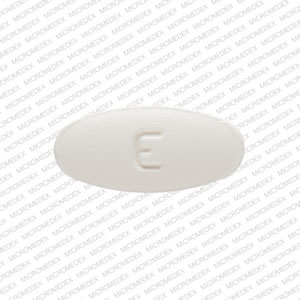Zolpidem and Alcohol/Food Interactions
There is 1 alcohol/food/lifestyle interaction with zolpidem.
zolpidem food
Moderate Food Interaction
GENERALLY AVOID: Alcohol may potentiate some of the pharmacologic effects of zolpidem. Use in combination may result in additive central nervous system depression and/or impairment of judgment, thinking, and psychomotor skills.
ADJUST DOSING INTERVAL: Administration of zolpidem with food may delay the onset of hypnotic effects. In 30 healthy subjects, administration of zolpidem 20 minutes after a meal resulted in decreased mean peak plasma drug concentration (Cmax) and area under the concentration-time curve (AUC) by 25% and 15%, respectively, compared to fasting. The time to reach peak plasma drug concentration (Tmax) was prolonged by 60%, from 1.4 to 2.2 hours.
MANAGEMENT: Patients receiving zolpidem should be advised to avoid the consumption of alcohol. For faster sleep onset, zolpidem should not be administered with or immediately after a meal.
References
- "Product Information. Ambien (zolpidem)." sanofi-aventis PROD (2001):
- Yamreudeewong W, Henann NE, Fazio A, Lower DL, Cassidy TG "Drug-food interactions in clinical practice." J Fam Pract 40 (1995): 376-84
Zolpidem drug interactions
There are 463 drug interactions with zolpidem.
Zolpidem disease interactions
There are 8 disease interactions with zolpidem which include:
- alcohol intox
- depression
- drug dependence
- liver disease
- glaucoma
- liver disease
- resp depression
- renal dysfunction
More about zolpidem
- zolpidem consumer information
- Check interactions
- Compare alternatives
- Pricing & coupons
- Reviews (1,054)
- Drug images
- Latest FDA alerts (4)
- Side effects
- Dosage information
- Patient tips
- During pregnancy
- Support group
- Drug class: miscellaneous anxiolytics, sedatives and hypnotics
- Breastfeeding
- En español
Related treatment guides
Drug Interaction Classification
| Highly clinically significant. Avoid combinations; the risk of the interaction outweighs the benefit. | |
| Moderately clinically significant. Usually avoid combinations; use it only under special circumstances. | |
| Minimally clinically significant. Minimize risk; assess risk and consider an alternative drug, take steps to circumvent the interaction risk and/or institute a monitoring plan. | |
| No interaction information available. |
Further information
Always consult your healthcare provider to ensure the information displayed on this page applies to your personal circumstances.


